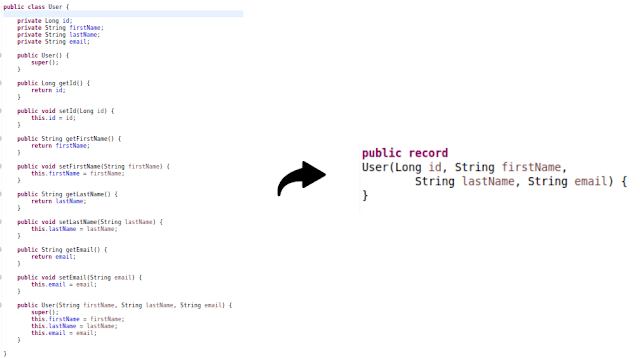Java Record as DTO in Spring Boot Application

In this section, we will show how we used Java Record as DTO in the Spring Boot application. The GitHub repository link is provided at the end of this tutorial. You can download the source code. From Java 14 onwards, the record is a special type of class declaration aimed at reducing the boilerplate code. Technologies used : Spring Boot 2.6.3 Spring Data JPA Java 17 H2 DB Maven 3+ Let's do it, Final Project Directory Maven[pom.xml] A Project Object Model or POM is the fundamental unit of work in Maven. It is an XML file that contains information about the project and configuration details utilized by Maven to build the project. <?xml version = "1.0" encoding = "UTF-8" ?> <project xmlns = "http://maven.apache.org/POM/4.0.0" xmlns:xsi = "http://www.w3.org/2001/XMLSchema-instance" xsi:schemaLocation = "http://maven.apache.org/POM/4.0.0 https://maven.apache.org/xsd/maven-4.0.0.xsd" > <modelVersion&g
